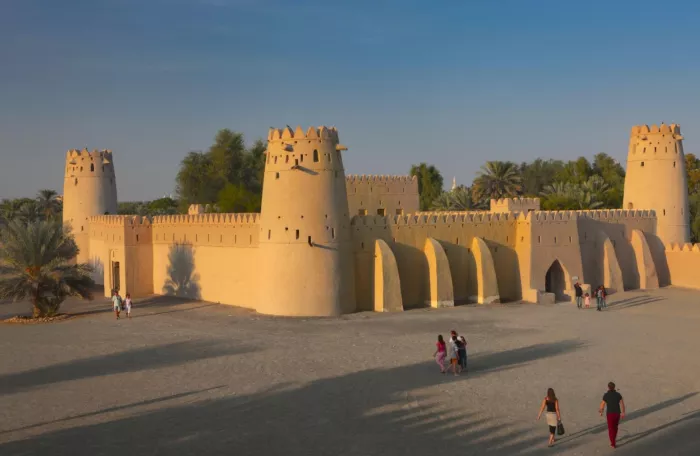Beneath its petroleum-rich surface, Abu Dhabi reveals itself as a sophisticated cultural destination where ancient irrigation systems whisper Bedouin wisdom alongside Jean Nouvel’s modernist “Rain of Light” dome at Louvre Abu Dhabi. The emirate’s Al Ain Oasis – a UNESCO-listed 1,200-hectare expanse of 147,000 date palms nourished by 4,000-year-old falaj waterways – demonstrates how this desert civilization mastered hydrological engineering centuries ago. Visitors can trace this legacy from the mudbrick watchtowers of Qasr Al Hosn (the city’s oldest stone building) to the forthcoming Natural History Museum’s hyper-futuristic 55-petal structure on Saadiyat Island’s cultural district.
Biodiversity Thrives in Arid Landscapes
The emirate’s conservation efforts create startling ecological contrasts: Al Ain Zoo’s free-roaming Arabian oryx herds share the same latitude with Sir Bani Yas Island’s luxury safari resorts, where guests swim in infinity pools overlooking Rub’ al Khali’s crimson dunes. Traditional dhow cruises along the Corniche reveal a skyline where Norman Foster’s Masdar City eco-towers rise beside mangrove-fringed beaches – 80% of the world’s endangered hawksbill turtles nest on these shores. “Our ancestors turned sand into farms,” explains guide Sihab while demonstrating ancient grafting techniques at date palm plantations, “Now we’re cultivating sustainable tourism.”
The Gulf’s New Grand Tour
Saadiyat Island’s $27 billion arts cluster has become the Middle East’s answer to Florence’s Renaissance: the Louvre’s 600-piece permanent collection (including Ming dynasty porcelains) dialogues with Guggenheim Abu Dhabi’s forthcoming Middle Eastern contemporary art trove. Nearby, teamLab’s digital “Phenomena Abu Dhabi” immerses visitors in algorithm-generated arabesques, while Berklee College of Music students fuse maqam scales with jazz improvisation. This cultural alchemy extends to retail – at Qasr Al Sarab’s desert boutique, Emirati women hand-stitch camel wool fashions while discussing Zayed National Museum’s upcoming exhibition on pearl diving poetry.
Bedouin Legacy Meets Avant-Garde
The newly restored Al Jahili Fort exemplifies Abu Dhabi’s living heritage approach, where visitors donning traditional bisht cloaks can join falconry demonstrations before attending underground film screenings in its cool adobe chambers. Such duality defines the emirate’s appeal: Michelin-starred chefs reinterpret camel milk desserts at Emirates Palace, while Al Qattara Arts Centre’s resident calligraphers teach Instagrammable khatt script alongside VR graffiti workshops. As the dusk call to prayer echoes across Liwa Oasis’ mega-dunes, glamping guests at Anantara’s luxury tents experience this synthesis firsthand – sipping cardamom coffee while stargazing through Bedouin-designed telescope apertures.
Related Topic:
- Thailand: Is It Really the Top Retirement Haven for Western Tourists
- Hong Kong Attracts Around 20 Million Visitors in the First Five Months of 2025
- Argentina’s Pioneering Chinese-Spanish Bilingual School Bridges Cultures

